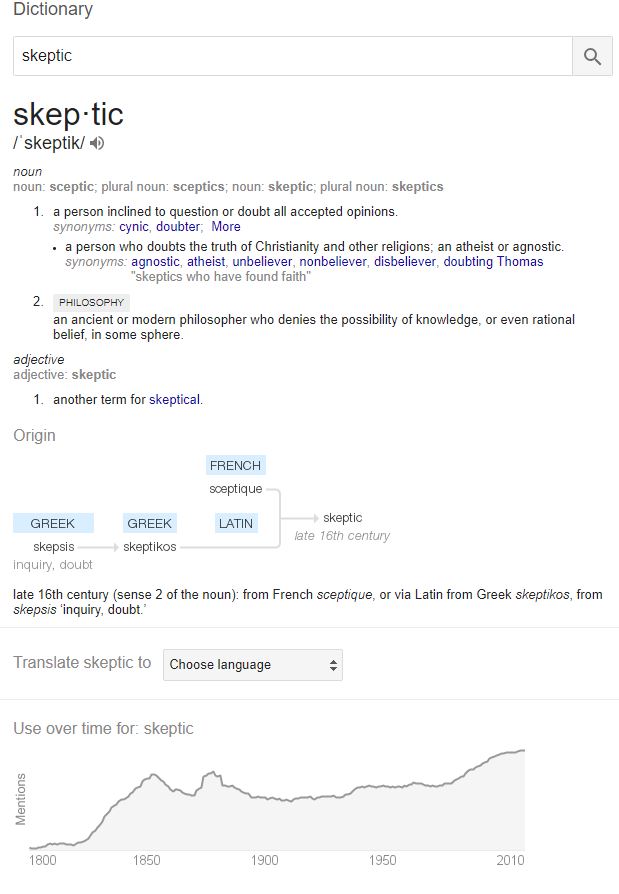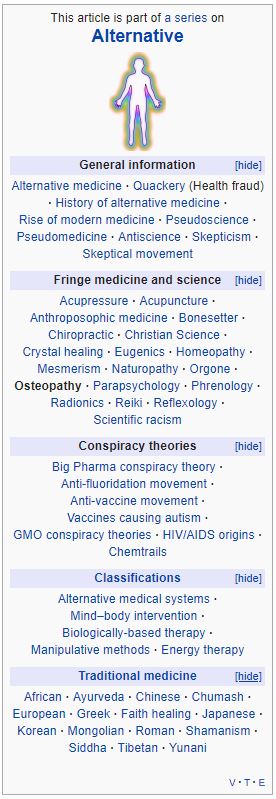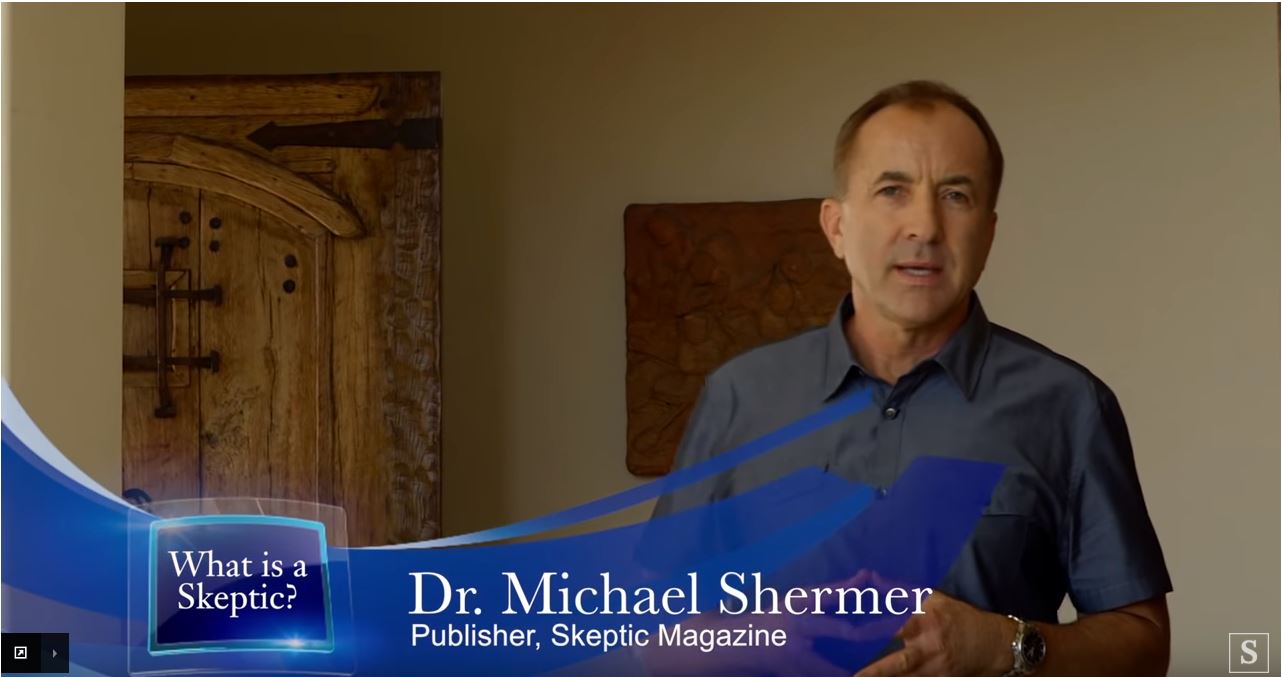I outed myself as a skeptic at the recent 2018 INCAM Research Symposium titled Complementary and Integrative Medicine Research in an Era of Skepticism.2https://www.iscmr.org/content/incam-2018-research-symposium
I'm used to coming out. I have to come out as queer on a frequent basis. Usually, it's part of a conversation, slipped in as matter-of-fact. No biggie, because what does a queer person look like?
For that matter, what does a skeptic look like?
Apparently not me.
I didn't go there with the express purpose of coming out as a skeptic. I went as a delegate from the Ontario Association of Osteopathic Manual Practitioners (OAO) because I'm Chair of the research committee and this is a research symposium with a significant Canadian osteopathic presence.
Given the title of the symposium though I figured I would have some company. I didn't expect I'd end up being the only self-designated skeptic in the room.

Us Versus Them
I came out as a skeptic at the symposium because I was unfamiliar with the characterization of skeptic being presented. As I queer person I'm aware there's a spectrum, but I didn't realize there was more than one type of skeptic. The skeptic presented at INCAM was most definitively placed as the "other". The enemy. The bringer of attacks.
That's not my understanding of a skeptic, or of myself as a skeptical person.
The skeptic being described at the INCAM conference was not a simple doubter or questioner. They were characterized as violent in their verbal approach, uncaring and mean, with an agenda of destruction that was directed toward those in integrative health. These were career skeptics. Bent on building their brand on the backs of the dissenter.
Skeptical of the Skeptics
During the symposium, it was acknowledged that being skeptical should be a standard trait for the science-minded. The difference was that the them skeptic was being manipulative in their approach by using types of attacks that were argumentatively flawed. Now maybe it's because of my own ability to straddle or at the very least understand each camp, but I noticed that the accusations of these flaws are the same from both sides.
Being steeped in rhetoric and dogma, cherry picking or misrepresenting the available science, and dismissing or not seeing the research that is available are common arguments and accusations that the us skeptics and the them skeptics throw at each other. The era of skepticism, it seems, is not about questioning the veracity of the claim itself, but about questioning the manner in which it is delivered.
The founders and contributors of Science-Based Medicine (SBM) are obvious choices for the kind of career skeptic the participants at INCAM were talking about. SBM has a stated agenda against CAM and draws a hard line in the scientific sand.8https://sciencebasedmedicine.org/about-science-based-medicine/ They continuously use words like pseudoscience, quackery, snake oil and fairy dust to blanket a particular profession as a whole. There are critics of this group, but not because of their attitude toward CAM as much as their tribal Capital S Skepticism.
"The problem is that they are not equally aggressive in criticizing mainstream medicine, of which they tend to be protective. Gorski and Novella no doubt worry that acknowledging the flaws of mainstream medicine will give aid and comfort to quacks, but they end up adhering to a double standard that undermines their credibility."9https://blogs.scientificamerican.com/cross-check/dear-skeptics-bash-homeopathy-and-bigfoot-less-mammograms-and-war-more/
I don't disagree, but the group came into existence to tackle the healthcare claims made by CAM therapies, in part because CAM will not challenge those claims itself. SBM didn't make it their job or stated agenda to compare medical claims to those of CAM as though they are equally culpable. SBM argues that the claims made by CAM are not, technically, medical or healthcare. To parse out the subtle or plausible aspects of CAM isn't SBM's goal.
Patient-Centered Includes The Claims
"Since the Enlightenment the medical profession has adopted the ‘scientific method’ in an attempt to get away from philosophy, magic and superstition. There is no doubt that this has led to improvements in diagnostic capabilities, treatment and life expectancy. However, especially since the ‘molecular revolution’, it seems that physicians have forgotten the dictum of Sir William Osler who said: ‘The good physician treats the disease. The great physician treats the patient’."10McCann, S. R. (2018). Quality of life: why most doctors don’t care? QJM: An International Journal of Medicine. https://doi.org/10.1093/qjmed/hcy070
The nebulous umbrella of CAM-led Wellness could be seen as a reaction to the reductionist phase that medicine has gone through for quite some time now. There is a great deal of legitimacy in spending time with a patient and listening to their story, and in medicine it's a lost art that is very slowly being reintegrated.11https://healthydebate.ca/2017/09/topic/patient-centered-care-stories
But patient-centered means integrating the scientific improvements that medicine has provided into a holistic approach, not coming up with alternatives.
Skeptical Foundations
When I became a skeptic of the healthcare claims prevalent in my own professions, it was not a sudden decision. My change of mindset came at the end of some really hard struggles and some significant cognitive dissonance that I've tried to unpack here, here and here. But what I did not shy away from during that journey was attempting to answer the hard questions being asked of me and the healthcare claims I was making. What answers I could pull together had to then meet even harder ethical questions.
Both of my professions - manual osteopathy and massage therapy - were represented at INCAM and can, in many ways, fit under the CAM umbrella. At the same time there are schisms in both professions that delineate the science and evidence-based professionals and claims from those who promulgate vitalism. Yet, both of my professions are inherently plausible under the SBM terms of biological plausibility, AKA the underlying foundational principle on which the group rests its arguments.
Biological plausibility is a simple enough concept, but one that is almost consistently ignored in research for CAM, and isn't all that consistently used within medicine either.
"Plausibility is essentially an application of existing basic and clinical science to a new hypothesis, to give us an idea of how likely it is to be true. We are not starting from scratch with each new question – which would foolishly ignore over a century of hard-won biological and medical knowledge. Considering plausibility helps us to interpret the clinical literature, and also to establish research priorities. But plausibility is not the ultimate arbiter of clinical truth – it must be put into context with clinical evidence, just as clinical evidence must be put into the context of scientific plausibility."12https://sciencebasedmedicine.org/plausibility-in-science-based-medicine/
Touch professions fit most reasonably into the second category of biological plausibility - unknown mechansim, but no reason to think it's not plausible.
I can speak for my professions. It IS plausible that touch within a therapeutic relationship has an effect. Basic sciences like physiology, neurology, and psychology can be used to support current neuroscience theories of mechanistic effects like downregulation of the nervous system. These same sciences can also support how the contexts in which touch is provided help explain both positive and negative outcomes that are seen.
What We Say Matters
The issue is not that manual therapies can't be supported by science, but that support is based on the claims that are made.
Manual osteopaths have and do make some pretty whack claims about both mechanisms of action and effect of that action. Massage therapists probably less so, but they're catching up by adding vitalistic energy-based modalities that come with claims that exist outside of supportable science. Passing these claims on to a patient is ethically irresponsible.
It is the same for all therapies that make some health claim. There are outcomes that are a mystery to us, sure, but that doesn't make them mysterious or beyond the reach of the known world. We have to operate within the boundaries of known science today, not hope that someday our claims will be justifiable.
You Are Here

The Heart of The Matter
Though there may be little difference in the perceived tactics of the warring sides, there is a fundamental difference in the attitudes. Both sides believe they are right, and righteous in their crusades and both sides have an agenda. SBM as representative of the skeptics makes their agenda clear and they have not strayed from it. Those in the room at INCAM characterizing the skeptics as attack dogs also have an agenda, they just haven't articulated it and don't see it clearly.
"... those who exhibit unhealthily deficient skepticism are receptive to believing; however, what they are receptive to believing is not so much what is true as what they want to be true. Thus, in its own way, the skeptical attitude evinced by those who manifest unhealthily deficient skepticism also comes intertwined with an agenda (whether conscious or unconscious) inimical to genuine pursuit of the truth of the matter, and also evinces a disregard or neglect of available evidence that might call into question views the person wants to hold." 14Le Morvan, P. (2011, February 1). Healthy Skepticism and Practical Wisdom. https://doi.org/10.5840/logos-episteme20112151
Fundamentally it's impossible to be both a skeptic and a skeptic denier. These are opposing states, and there has to be a resolution, especially because engagement with the scientific process demands skeptical thought. If that skeptical thought is expressed and applied only externally toward the other but not internally toward the self, there can be no supportable argument.
This thought process has nothing to do with the nuts and bolts of research itself. At the symposium, there were some really decent presentations of research that would or could meet a standard of application. The type of research that can be measured as fair or good quality is achievable by the people in this group. They have doctorates and masters qualifications and good knowledge of methodology, or at least knowledge of where to get methodological information. They have a passion for their professions and a drive to achieve. If the funds and resources were available the quality of research would be substantially higher than it is currently.
But the hypotheses being proposed and the implicit bias about what should be studied would not change.
"Curiously, and somewhat paradoxically, it is also interesting to note that those who evince unhealthily excessive skeptical attitudes with regard to some claims often also tend to be gullible or insufficiently skeptical with regard to other claims that appear to confirm their antecedently held views. Gullibility and closed-mindedness are often symbiotic." 17Le Morvan, P. (2011, February 1). Healthy Skepticism and Practical Wisdom. https://doi.org/10.5840/logos-episteme20112151
The belief in the product is so entrenched that CAM organizations seek to research preordained concepts. That's not genuinely engaging with the processes of science.
The Threat to Self
What could it mean for CAM to engage honestly with the processes of science? Not just how to do it well, but how to do it with biological plausibility as a minimum standard. Candid scientific engagement would mean that the process was not "inimical to genuine pursuit of the truth of the matter."18Le Morvan, P. (2011, February 1). Healthy Skepticism and Practical Wisdom. https://doi.org/10.5840/logos-episteme20112151
It's a threatening prospect because it would mean that certain mechanistic and healthcare claims made on the basis of incomplete or incorrect information cannot and should not exist any longer. At the extreme end of this, some professions that claim to be healthcare but are built from these inadequate foundations should also no longer exist.
That's really going to mess with some heads and mess with some ways in which people earn their living, and isn't that really the heart of the matter?
I wish I had better news, but there's no way to be live in the era of the skeptic without first doubting your own claims, and in many cases shredding them and replacing them with better, more supportable versions.
A Skeptic Looks Like ...
In the end, my skeptical attitude was boiled down to a simple equation, the answer to which could be both an endpoint and a new direction that meets ethical obligations to patients. This equation should really be at the beginning.
If you can't scientifically support the claim, don't make the claim.
